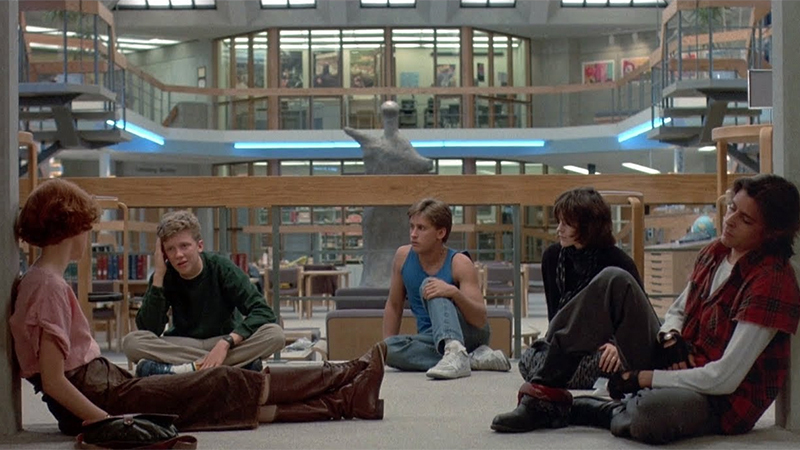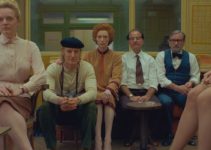
“And these children that you spit on as they try to change their words are immune to your consultations. They’re quite aware of what they’re going through…” I’m here to look at a teen classic, ‘The Breakfast Club.’ In my opinion, it is a coming-of-age masterpiece from the ‘80s. It was written and directed by the talented John Hughes. His films understood teenagers. He was responsible for Sixteen Candles, Pretty in Pink, Some Kind of Wonderful and Ferris Bueller’s Day Off. His career hit the stratosphere with the ‘Home Alone’ movies. What set ‘The Breakfast Club’ apart from other teen comedies is how insightful and emotionally resonant it was for its time.
The story takes place in a high school library. A real high school in a Chicago suburb was used for the film location. Five students all violated high school rules and their punishment is detention from 7 to 4 in the school library. What an interesting concept! You isolate a group of people in a room. They eventually talk to each other and they exchange truths about themselves. They learn something new about themselves and one another. You have Claire (Molly Ringwald), the popular girl. Andy (Emilio Estevez) is the jock. Bender, the tough guy (Judd Nelson). Allison (Ally Sheedy) is the outcast and Brian (Anthony Michael Hall) is the brain. They have nothing in common but then something happens. They clash and then begin to open up to each other.
You might say big deal, it’s just another teen movie. It was a big deal at the time for so many reasons. During the ‘80s, teen movies dealt with shallow, self-entitled kids wanting to get wasted at parties and lose their virginity. ‘The Breakfast Club’ was different. Hughes never paints the students in a negative light. As the story moves forward, each character’s backstory is revealed. We get to see an honest depiction of what they are going through in their lives. When they do let their guard down and show their vulnerable side, they are not ridiculed but supported by their peers. You must remember that they don’t hang out with each other at school because they belong to different social cliques. It is brilliant how Hughes starts them out as stereotypes, peels back their layers and shows how each one of them suffers from similar problems.
When the classroom becomes too oppressive, they venture out as a group of friends. The foe is the nasty principal Mr. Vernon (Paul Gleason). He is played to represent the stupid adults that don’t understand them. The way he treats Bender is downright cruel. I doubt this kind of behavior would be tolerated in the classroom today. Some may point out that the changes the characters make are a bit cheesy. An example of that is when Ally Sheedy’s character takes off the dark make-up and puts on a dress. Maybe Hughes is trying to show us that as we enter adulthood, we do have to conform to societal norms. You can still have a uniqueness about yourself but need to tone down the rebellious attitude. I don’t see anything wrong with it. It’s a part of growing up.
There are so many aspects of ‘The Breakfast Club’ to admire. The script from Hughes is smart and funny. The cast is incredible. Molly Ringwald plays the “It-girl” perfectly. Ringwald starred in three Hughes films (the other two being Sixteen Candles and Pretty in Pink). Judd Nelson embodies the misunderstood James Dean-type. The rest of the cast is equally strong. ‘The Breakfast Club’ is one of my favorite films of all time. It holds up well to this day because it is a realistic look at the teenage experience. Ally Sheedy’s character says it best, “When you grow up, your heart dies.” I recommend revisiting this teen classic.


